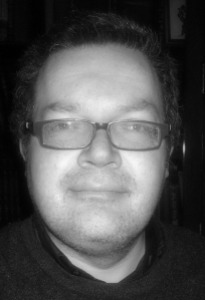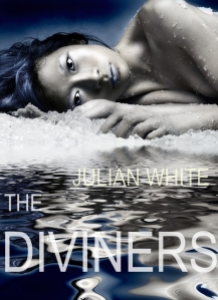What first attracted you to horror writing?
Its versatility. You can describe the contemporary world, or you can go deep into the psychology of isolated individuals, or you can tear up the rules and plunge into a universe of total fantasy. That’s my idea of a kick-ass genre.
What is your most notable work?
The Diviners, now out on Kindle eBook. It’s a chunky, parallel-plotted novel in the Stephen King vein, except that it’s warped in a way that is, I’m afraid, all me. It covers the events of one day in a humdrum seaside town, where four characters have their lives turned upside-down by a supernatural force. Cue all sorts of skin-crawling apparitions and perverse dilemmas. There’s gruesome action, tragedy, inky-black farce, a sinister cosmology and a colourful historical backdrop. It’s part ghost story, part stalk-and-slash, part monster rally and part psychological thriller. Something for everyone, I hope!
I haven’t yet settled on a follow-up to The Diviners. In the meantime, I’m exploring my playful side by penning a short, humorous fantasy for older children. Vaguely reminiscent of some of Michael Moorcock’s lighter pieces, it’s a way of getting all those good vibes out of my system before my next tale of terror.
Who do you admire in the horror world?
My favourite horror novelist is Richard Laymon. Reading him isn’t like reading at all – your brain seems to soak the words right off the page. I also love Christopher Fowler, so deadly and elegant. A lot of older writers, such as Ira Levin, James Blish and John Farris, who wrote The Fury.
Do you prefer all out gore or psychological chills?
My feeling is if a book is going to describe itself as horror, then it has to go for the jugular. When I pick up a new horror novel, I want it to guide me into unfamiliar circles of hell. So I come down on the side of gore. Having said that, the best gore inevitably has a psychological impact.
Why should people read your work?
I try to combine the virtues of a good mainstream novel – engaging characters, a detailed environment, well-crafted sentences – with the sort of extreme, heart-pounding situations that make you turn the pages in a hurry. At the same time, I take risks, by having my stories veer from the harrowing to the farcical to the outrageous and back again. Lastly, my cult credentials are impeccable, in that almost no one has heard of me. Relish the expression on your friends’ faces as they ask, “Julian who?”
Recommend a book.
The Stake is my favourite Richard Laymon novel. It’s funny and tender, but infused with a frosty breath of mortality. There’s a hilarious passage where two of the characters make a drunken excursion into the desert to retrieve a vintage jukebox. American writing at its free-wheeling best.











